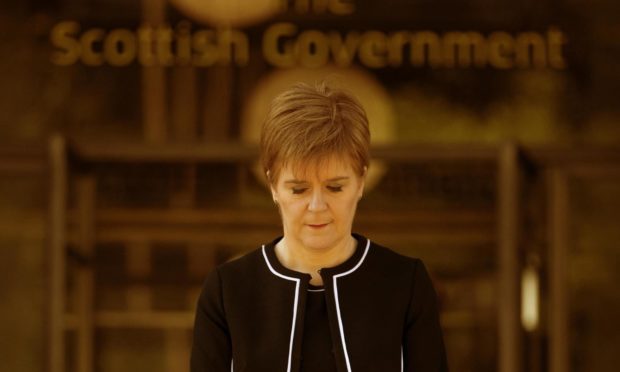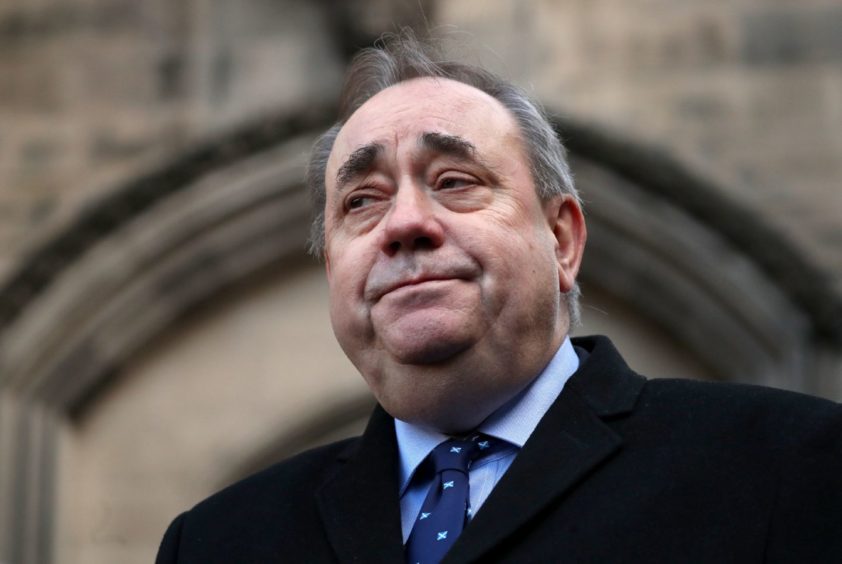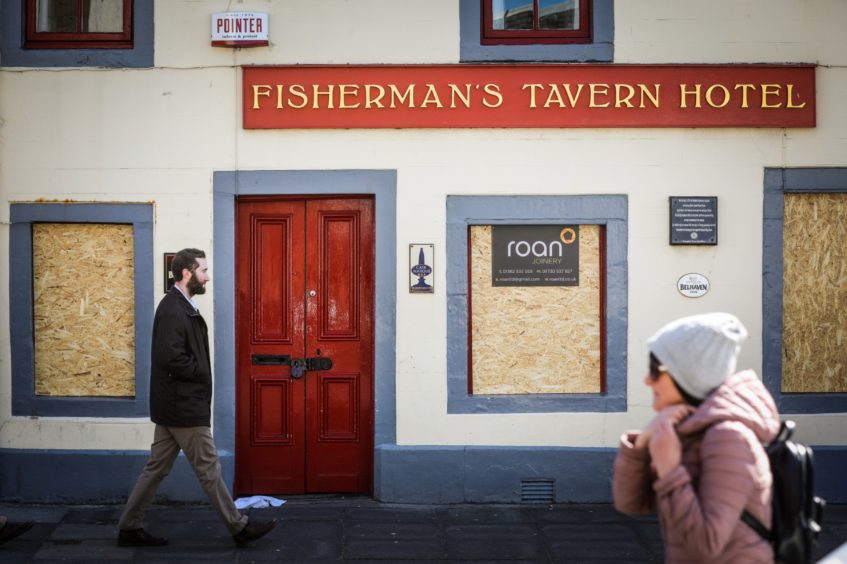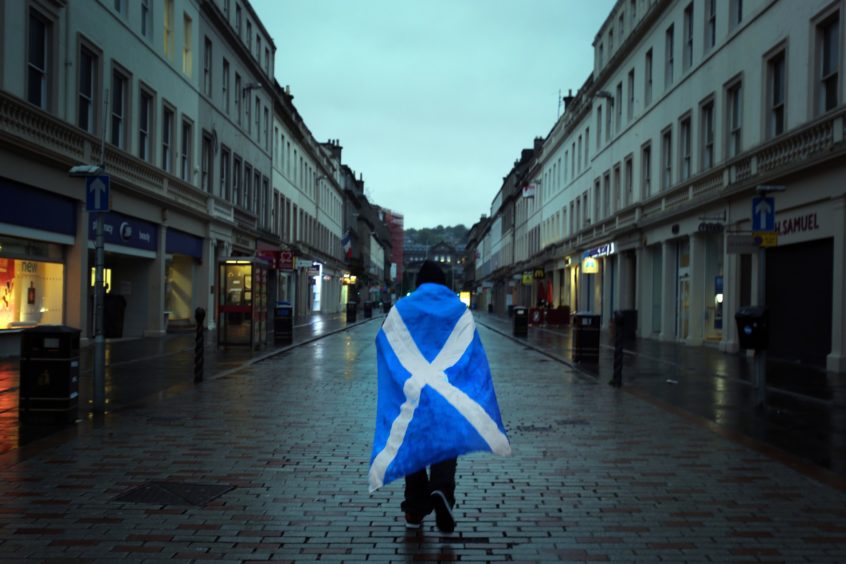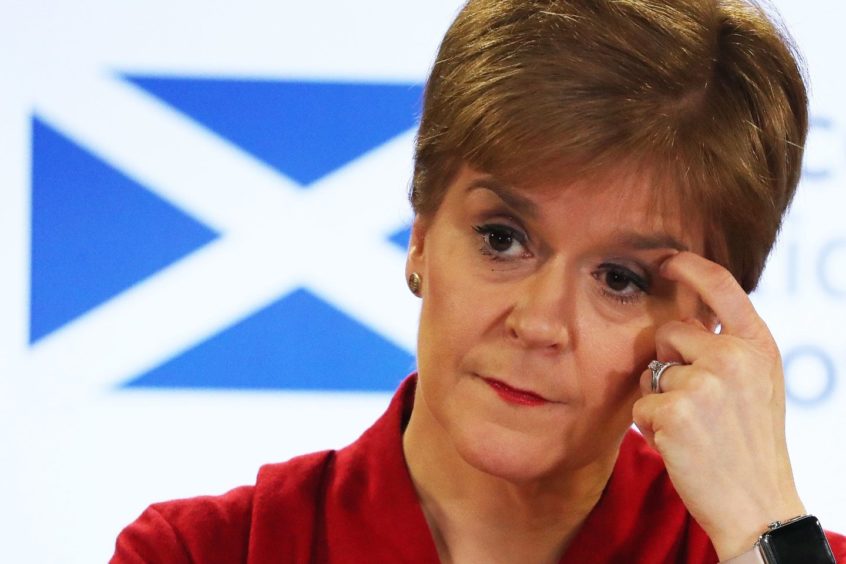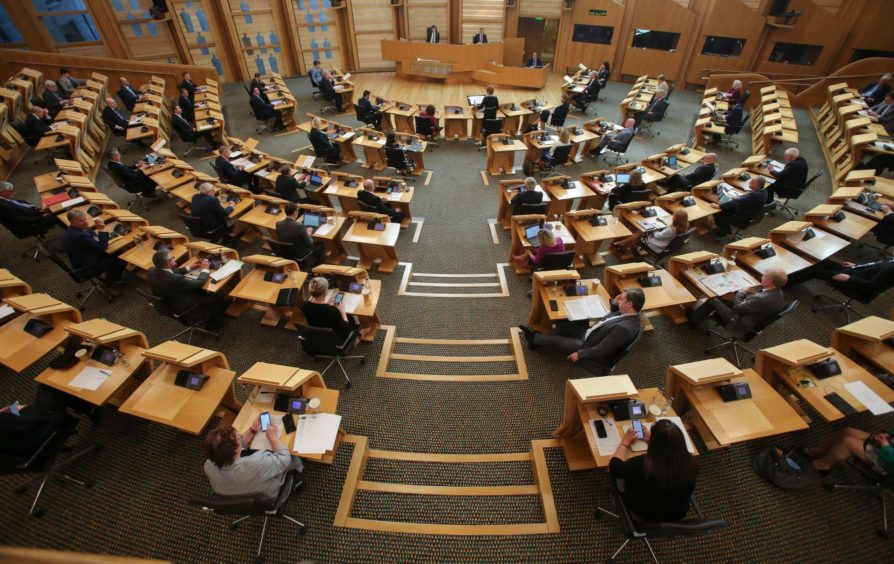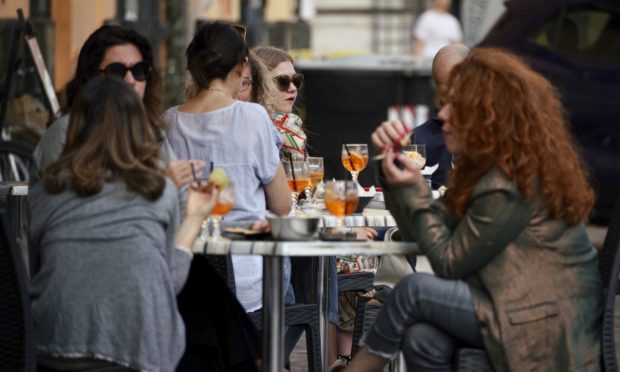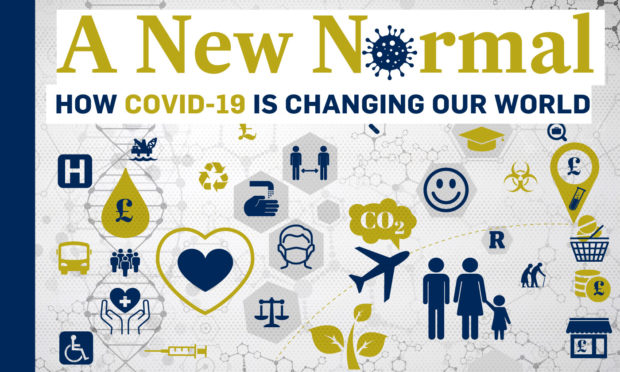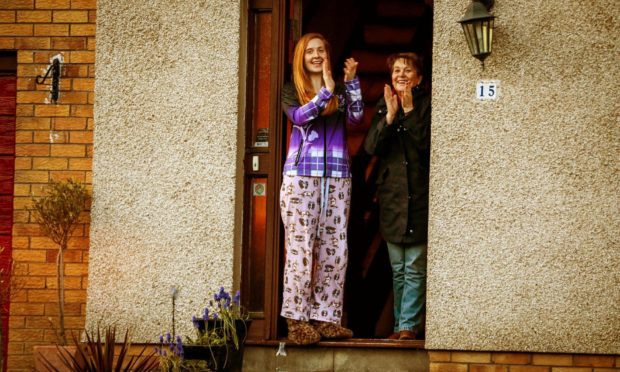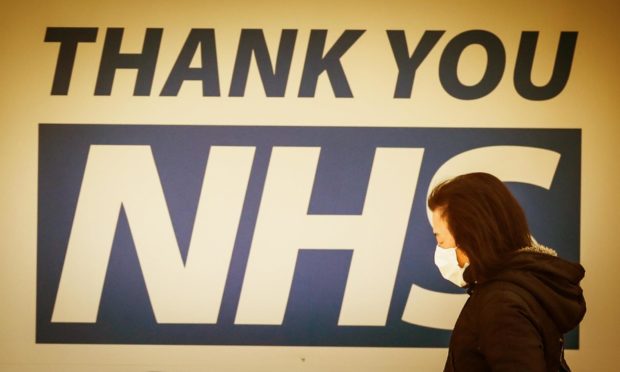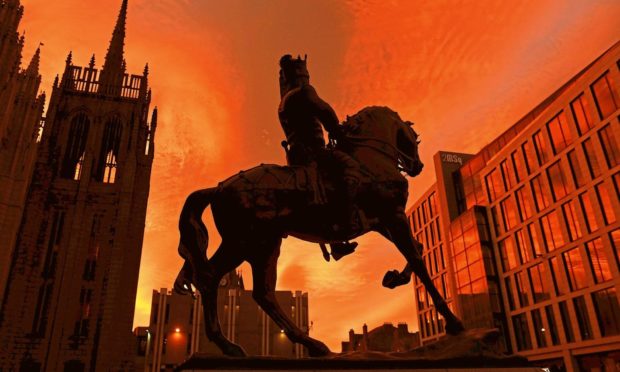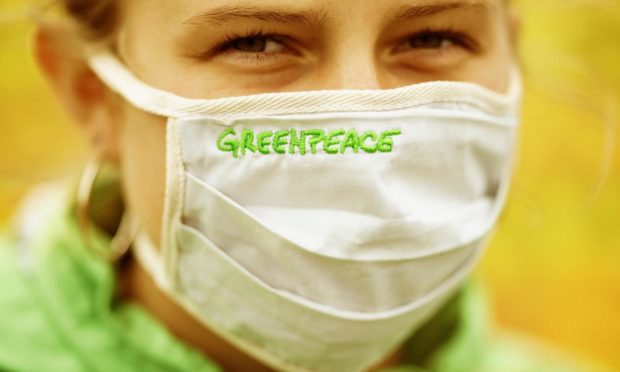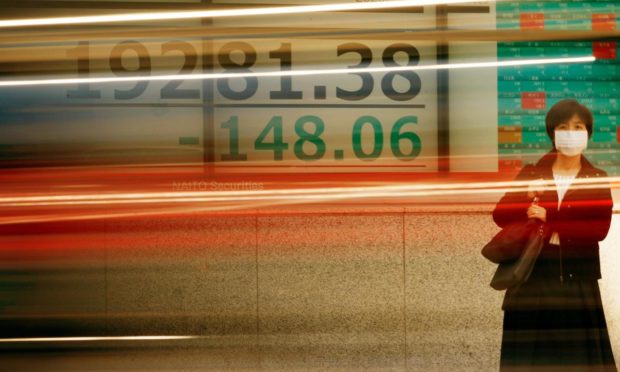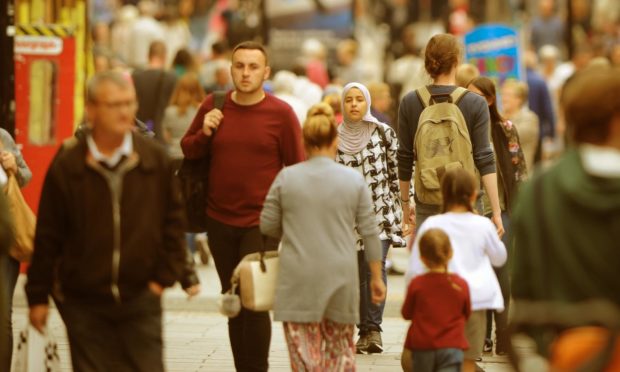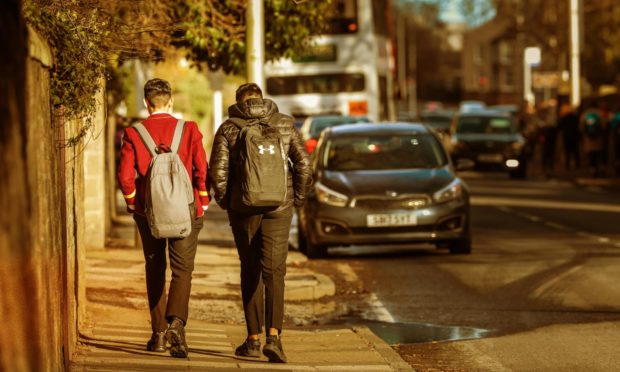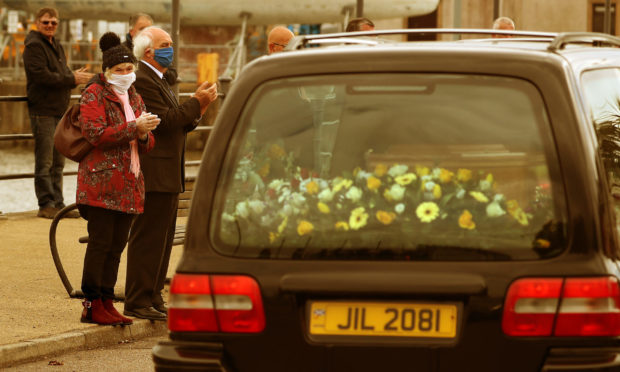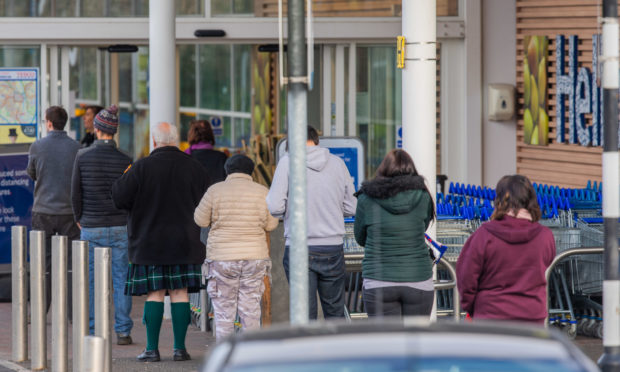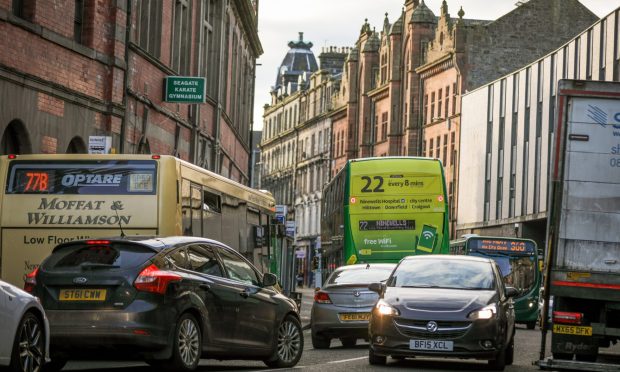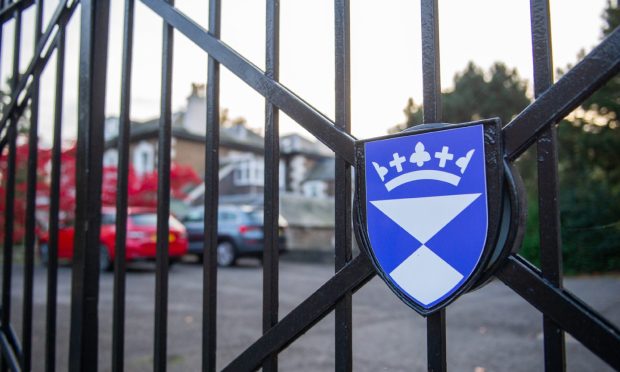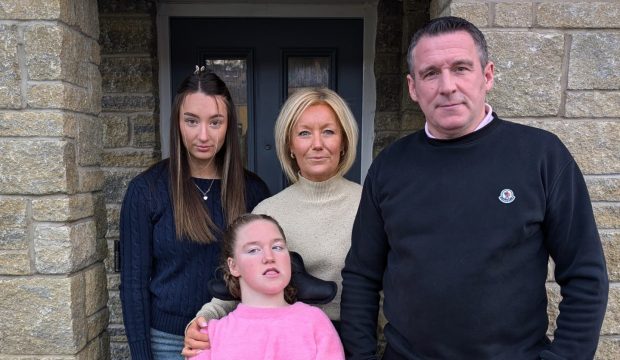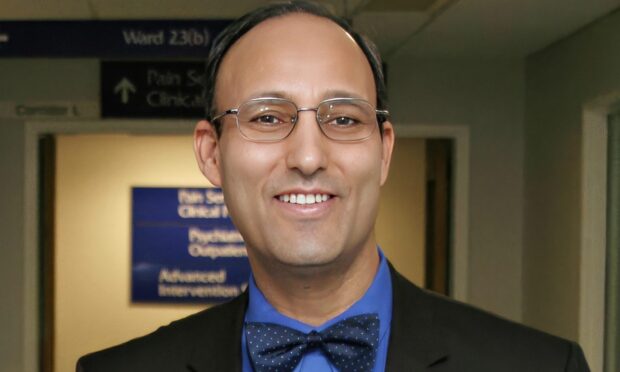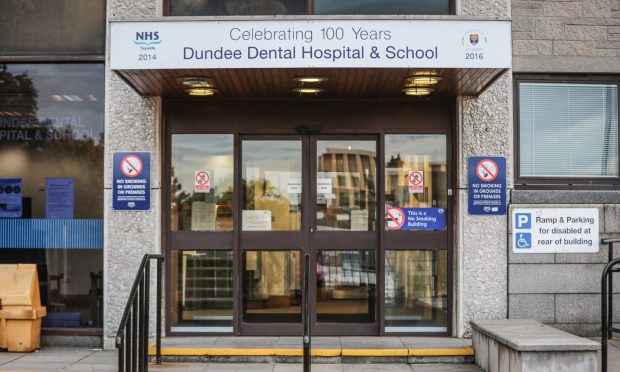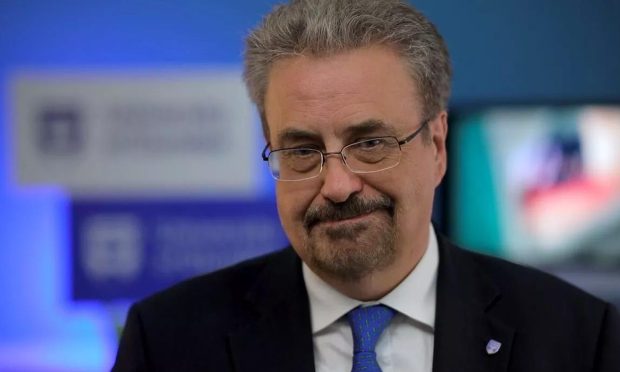Before Scotland’s deadly encounter with the coronavirus, Nicola Sturgeon had hoped 2020 would be the year she would deliver Scottish independence on the back of a second referendum.
Long-standing demands for the powers to hold indyref2 were “paused” in March in recognition of the challenges posed by the severity of the pandemic, the constitutional sabre-rattling replaced with an uneasy truce between Scottish and UK governments in the interests of the common aim of minimising the damage caused by the disease.

But long before the virus reached Scotland, it was already clear the first minister’s calls for another independence vote were falling on deaf ears in London. Boris Johnson’s refusal to hand over the required powers had already ensured plans for 2020 were to amount to nothing.
Eyes shifted to next year’s Scottish election as the next staging post.
Although saving lives is the most pressing matter now, that has not prevented discussion about how the outbreak may influence next year’s contest and hence the battle for Scotland’s constitutional future.
With the virus casting a long shadow over everything from the NHS to the political personalities and the economy, here is a look at how Covid-19 may influence the SNP’s quest for independence.
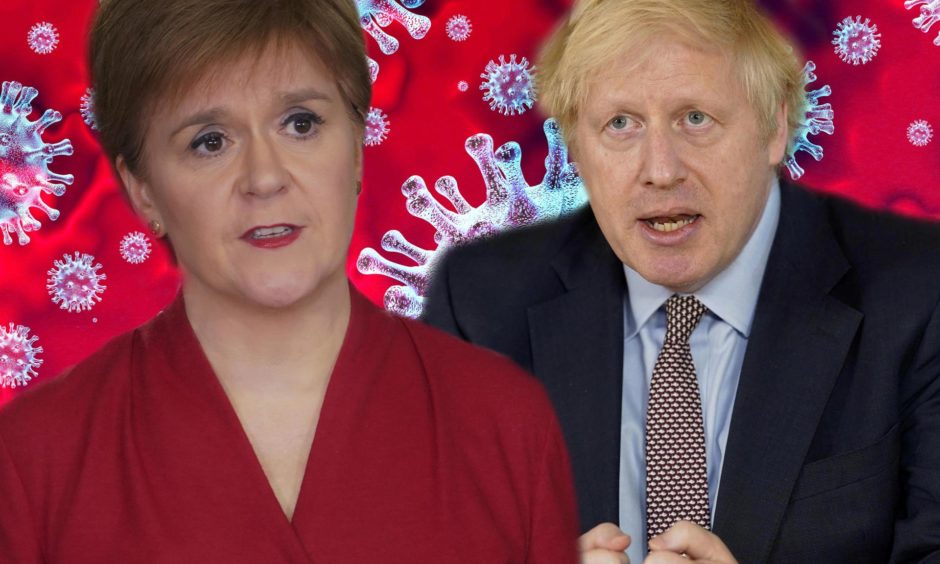
Nicola Sturgeon versus Boris Johnson
It seems an age ago now but in the days before the outbreak, Nicola Sturgeon’s star seemed on the wane. The SNP may have been riding high in the polls but her government had been rocked by the troubling departure of Finance Secretary Derek Mackay after it was found he had bombarded a 16-year-old schoolboy with flirtatious texts.
A battle to succeed her appeared to have broken out between the Edinburgh South West MP Joanna Cherry QC and the SNP’s former Westminster leader Angus Robertson. The Alex Salmond trial was in full swing and Ms Sturgeon herself, it was said, was growing weary of the pressures of being first minister after more than five years in the job. Her government was under sustained attack for its record on health and education.
It is often said, though, that political leaders show their true mettle when faced with a crisis and when the virus arrived, she began to receive plaudits for her deft handling and willingness to lead from the front. It may be simplistic to attempt to boil down the constitutional battle into a political beauty pageant between Ms Sturgeon and Boris Johnson. But many observing the first minister and the prime minister’s approach to the crisis cannot resist the temptation.
The first minister’s strategy of holding a daily Covid-19 briefing before the Downing Street equivalent resulted in her often leading the agenda. More importantly, she has performed well during these briefings, keeping the messaging relatively straightforward and being up-front enough to say when the answers are not at her fingertips. Supporters have hailed her willingness to depart from UK policy as an illustration of the benefits of independence.
Furthermore, her simple “stay at home” mantra has been compared favourably with the muddled messaging from Downing Street. Even when his own brush with Covid-19 is taken into account, Mr Johnson has not been a constant presence at UK Government briefings – rotating his appearances with his Cabinet colleagues and often being outshone by his Chancellor, Rishi Sunak.
Of course, Ms Sturgeon has not had it all her own way. She has faced criticism on care home testing and PPE supplies. Damaging claims that thousands of lives could have been lost because lockdown was not introduced quickly enough have cost her some of her lustre and revelations that the virus had taken hold at a Nike conference in Edinburgh a full week before mass gatherings were called off have also raised serious questions.
A man who cannot even safely look after his own country can’t restrict the forward march of another. The road to independence is open.”
Kenny MacAskill MP on Boris Johnson
While the party leader maintains a dignified front, some in her party have been unable to restrain themselves from vocalising the perceived opportunities the crisis presents.
Former Justice Secretary Kenny MacAskill is among them, publicly claiming the “incompetence” of the UK Government would boost the independence campaign.
Mr Johnson, Mr MacAskill claimed, had been “utterly hapless” compared to Ms Sturgeon’s “virtually flawless” response.
“A man who cannot even safely look after his own country can’t restrict the forward march of another. The road to independence is open,” he declared.
James Mitchell, Professor of Public Policy at Edinburgh University, who has made several in-depth studies of the SNP, takes a more measured view.
Ms Sturgeon had proved a “superb” communicator during the crisis, he agreed; Mr Johnson, by contrast, had been “hopeless”.
But a serious analysis of Ms Sturgeon’s approach to the crisis suggested it has been “far from perfect”. The first minister, he said, was guilty of relying on a “very narrow base” of advisers and exhibiting an “extraordinary blind spot” over the care home crisis.
Despite these reservations, Professor Mitchell predicted that Ms Sturgeon would emerge strongly in the final reckoning.
Boris Johnson will be compared with Nicola Sturgeon and that is not a happy comparison for the prime minister.”
Professor James Mitchell of Edinburgh University
“I don’t think these things will seriously undermine her with the electorate. She will come out of this and be compared with Johnson and that can only work to her advantage. I don’t think there will be a big public appetite for blaming and shaming.
“What I suspect – but obviously do not know for sure – is that this pandemic will have a bigger impact on party support than support for independence. The likelihood is that it will damage the Conservatives in Scotland as Boris Johnson will be compared with Nicola Sturgeon and that is not a happy comparison for the prime minister.”
But increased support for the SNP does not necessarily mean increased support for independence, Professor Mitchell suggested.
“Johnson does appear to be misjudging the mood of Scotland and playing into the SNP’s hands. But whether the SNP is able to take advantage is another matter – it may manage to increase support for the party… but for independence?” Professor Mitchell wondered.
Only time will answer that question.
Challenges for the SNP and the Alex Salmond factor
The day before Scotland went into lockdown Alex Salmond stood outside Edinburgh’s High Court. The coronavirus was spreading across the country as the former first minister made an emotional plea to the journalists who had just witnessed his dramatic acquittal on several allegations of sexual assault including one of attempted rape.
“People are dying and many more are going to die,” Mr Salmond said. “What we are doing just now, and I know you’ve got a job to do, it ain’t safe. I know it’s your job but it ain’t safe. Those who can should go home and take care of their families – and God help us all.”
There is certain evidence that I would have liked to have seen led in this trial but for a variety of reasons we were not able to do so. These facts will see the light, but it won’t be this day.”
Alex Salmond on March 23
With his highly tuned political antennae, Mr Salmond had captured the apprehension felt by the nation on March 23.
The antennae of the journalists, however, were drawn to an earlier part of Mr Salmond’s post-trial statement.
“There is certain evidence that I would have liked to have seen led in this trial but for a variety of reasons we were not able to do so,” Mr Salmond said. “These facts will see the light, but it won’t be this day.”
It was a warning clearly aimed at some of his former colleagues in the SNP, the party Mr Salmond once led with distinction but now split down the middle as a result of the events leading to the court case.
Within minutes of the jury finding the former SNP leader not guilty of 12 charges of sexual and indecent assault and one of attempted rape (one charge of sexual assault with intent to rape was found not proven), allies went on the offensive.
AUDIO: listen to the ‘New Normal’ series writers discuss their findings in this special Stooshie podcast
His friend Joanna Cherry called for an independent inquiry into how the allegations made against Mr Salmond were handled by the SNP. Another friend Kenny MacAskill rather cryptically suggested there should be “resignations” following the verdict.
Behind those outbursts is the suggestion that Mr Salmond was somehow the victim of a conspiracy inspired by his enemies in the party. During the trial, he said some incidents were “deliberate fabrications for political purposes”.
Mr Salmond is said to be writing a book, giving his side of the story – a publication that could have an explosive impact on the SNP when it comes out.
Ms Sturgeon was spared giving evidence in the court case, but she may yet be dragged into the saga. In particular, questions will arise over how she and the Scottish Government handled the complaints against her former mentor.
The Scottish Parliament has already set up a committee to investigate the Scottish Government’s botched inquiry into Mr Salmond’s behaviour and the first minister has referred herself to the standards panel that rules on the ministerial code.
Some political opponents have been investing quite a lot in this, that it will end up with some sort of catastrophe for the SNP. Well so far, not so. I’m sure it will be bumpy, but politics is very often bumpy.”
A senior SNP figure
One senior SNP figure suggested that Ms Sturgeon should be able to tough out any controversy, especially if her reputation has been enhanced by her coronavirus leadership.
“Some political opponents have been investing quite a lot in this, that it will end up with some sort of catastrophe for the SNP. Well so far, not so,” the SNP source said. “I’m sure it will be bumpy, but politics is very often bumpy. If she was already seen as being damaged, it might be a different story.”
But the SNP leader will still have to deal with the fall-out from the case and the fact that the episode has divided the SNP into bitterly opposed Sturgeon and Salmond camps.
Quite how all this is likely to pan out over the coming months is perhaps the great imponderable of Scottish politics. Will the SNP rip itself to shreds in the devastating aftermath of the Salmond trial, causing untold harm to the independence cause? Or will the disclosures prove to be less damaging than some are predicting with Ms Sturgeon emerging relatively unscathed?
“We are told there is going to be all these revelations and, of course, it could have an impact,” Professor Mitchell said. “It all comes down to the question: what will be revealed?”
Whatever the future holds, Ms Sturgeon, the SNP and the independence cause can hardly expect a period of political calm after the coronavirus storm.
Independence economics in the coronavirus era
For many, the SNP’s failure to make a convincing economic case for independence cost Alex Salmond victory in the 2014 referendum. Since then Covid-19 has torn up the economic rule book and threatens a cataclysmic impact on global finances. Factor the plummeting oil price into the equation and another pillar of the 2014 case teeters precariously.
Warnings of a deep recession and the vast amounts of money being thrown at the coronavirus will have a profound impact on the SNP and will force the party to recalibrate its sights on independence.
An internal Treasury document has estimated the crisis will cost the UK exchequer almost £300 billion this year. The worst-case scenario outlined by the document forecast the deficit rising to £516 billion in the current financial year, reaching a cumulative £1.9 trillion over five years.
Given Scotland’s deficit, when expressed as a percentage of GDP, has been historically higher than the UK’s, the challenge facing an independent Scotland is stark.
Comparisons with the 2008 banking crisis
According to David Bell, Professor of Economics at Stirling University, a comparison can be made to the banking crisis of 2008 when a Treasury bail-out of £500 billion was required to stop banks, including the Scottish-headquartered RBS and HBOS, from collapsing.
In the aftermath of the bail-out, those arguing against independence claimed being part of the UK sheltered Scotland against such devastating shocks.
“One of the big arguments pre-referendum was that the Scottish Government wouldn’t be strong enough to deal with Royal Bank of Scotland. Now it is similar – it’s not the same argument, obviously, but it is about broad shoulders (of the UK),” said Professor Bell.
Professor Bell said the UK Government was able to issue enough debt to cover spending on furloughing workers and other costs such as the benefits system.
“The UK Government can issue debt – £50 billion worth of debt – that’s what’s going to pay for this furlough scheme. The Scottish Government has no powers to issue debt on anything like that scale,” Professor Bell said.
One of the lessons governments will learn in the aftermath of coronavirus will be to build in more resilience to ensure economies are better protected against such events.
That is likely to involve restructuring the economy to make sure the country is more self-sufficient when it comes to supplies of food, medicines and personal protection equipment.
A plea for Scotland to be given more borrowing powers
This has led to calls for Scotland to be given more borrowing powers to pay for resilience measures. Currently, Scotland has the ability to borrow £450 million a year under the 2016 Scotland Act. Those calls have been led by Andrew Wilson, the former SNP MSP and RBS economist whose 2018 Growth Commission was his party’s most recent attempt at an independence blueprint.
The calls have also found a sympathetic ear on the other side of the constitutional divide. Professor Ronald MacDonald of Glasgow University’s Adam Smith Business School contributed to the Better Together campaign in 2014.
“I think there is a good case for changing the borrowing powers available to the Scottish Government,” Professor MacDonald said. “It could pay for resilience and infrastructure to drive productivity. It would lead to an extra layer of responsibility for the Scottish Government to grow the economy.”
The currency problem that refuses to disappear
But on the big question of the economic basis for independence, Professor MacDonald believes currency is still the inescapable obstacle for the SNP.
In Mr Wilson’s blueprint, the plan was for the introduction of an independent Scottish currency once six stringent economic tests were met. In the meantime, there would be a transitional arrangement of Sterlingisation, whereby Scotland would still use the pound but without a formal agreement with the Bank of England and with monetary policy still controlled by London.
“The narrative on currency is still very muddled. You simply cannot, in my view, have the kind of currency proposal that is still being proposed and have a successful and costless move into independence. It is still the Achilles heel,” Professor MacDonald said.
By having a fixed exchange rate, an independent Scotland would be unable to adjust to economic shocks, Professor MacDonald said. The alternative, he said, was for a floating exchange rate but that would create barriers when it came to trade with the rest of the UK.
The challenges created by Scotland’s deficit
Given the cash being splashed to combat the virus, another key issue is how an independent Scotland would cope with a vastly increased deficit. Mr Wilson’s independence Growth Commission proposed a 10-year period of savings amounting to £27 billion to bring down Scotland’s deficit after splitting from the UK.
That plan was described by the SNP’s opponents as “austerity on stilts”. Ms Sturgeon has been adamant that the response to this crisis must not be the austerity-driven approach of the UK Government after 2008. But given the far bleaker financial picture now, it is even more difficult to see how the books can be balanced in an independent Scotland.
Influential figures within the SNP have privately acknowledged that Mr Wilson’s blueprint will have to be “reframed” to reflect a changed reality.
They have admitted that meeting EU targets, specifying a debt limit of 60% of GDP and deficit limit of 3% of GDP, has suddenly become far more difficult – creating a barrier to the SNP’s plans for an independent Scotland re-entering the bloc.
Last year Scotland’s deficit was £12.6bn or 7% of GDP, including North Sea oil revenues, compared with the UK’s total £23.5bn deficit, which includes Scotland’s figure. The UK deficit when expressed as a percentage of GDP, is around seven times smaller, at 1.1%.
In February this year – before any Scottish coronavirus cases had emerged – it was reported that Scotland’s deficit had since risen to 7.2% of GDP.
The downward revision, which was attributed to the falling oil price and slow growth, took Scotland further away from the EU’s 3% requirement. These figures will take a further battering in the coronavirus-inspired economic storm.
The saving grace, if it can be described as such, for Scotland is that all other countries will be in the same boat. The SNP hope is that there may be some leeway from the EU in response to the changed economic circumstances. Another helpful factor, from the SNP’s point of view, is that borrowing costs are incredibly low and economists don’t forecast that changing any time soon.
SNP insiders looking at the economics still believe that independence can deliver Scotland from the damage of a hard Brexit.
“The risk of a no-deal Brexit has probably increased exponentially while nobody is noticing,” said one influential party figure.
When faced with the argument that Scotland would fare better within the broad shoulders of the UK, he said the SNP will point to smaller countries like Denmark, which has managed to finance its own coronavirus response. But he also conceded that setting up an independent nation would not be easy.
“The economics about this has always been about what sort of country do you want to be rather than is getting there too hard? Getting there is difficult and will be a challenge,” he said. “But if you are honest about how much hard work it will be people can choose where they want to be.”
SNP strategy, the 2021 Scottish election and indyref2 prospects
With the impact of Covid-19 expected to linger long into the future, the SNP will have to devise a strategy that keeps independence firmly on the table while acknowledging the far-reaching changes wrought by the virus.
Achieving an independence-supporting majority in next May’s Scottish Election will be the SNP’s over-riding ambition.
In that sense, next year’s campaign will have similarities to previous ones in that it will be fought on the basis that a vote for Ms Sturgeon is a vote for a referendum in the coming Holyrood term.
Given Scotland will still be feeling the effects of the virus, senior figures in the SNP admit indyref2 should not be held immediately after the election, assuming an SNP majority.
But they believe it is “reasonable” to hold a vote before the parliamentary term comes to a close. With the term due to end in either 2025 or 2026 that would be around a decade on from the 2014 vote. Waiting until then would provide some sort of counter to the pro-Union argument that a referendum had only just been held.
I think it is perfectly possible to propose a strong economic case for an independent Scotland in the new circumstances that emerge from the coronavirus crisis.”
Senior SNP figure
Rather than becoming bogged down in the scale of the economic and other challenges facing the country, one approach would be to turn radically altered circumstances into a virtue for the SNP.
“I think it is perfectly possible to propose a strong economic case for an independent Scotland in the new circumstances that emerge from the coronavirus crisis,” said one senior SNP figure.
“There is going to have to be a very significant societal change and economic change. Independence is a change scenario and it is possible to make an argument that there is going to have to be fundamental significant change in any event, let’s do it in the context of this particular change that maximises democratic control and decision making within Scotland.”
Successfully capturing the post-coronavirus mood and tailoring a message that embraces change will be key to securing a referendum. Whether Westminster will be minded to grant one, is another question entirely. But there is no doubt that another independence-supporting majority in 2021 would strengthen the SNP’s hand considerably.
Nicola Sturgeon’s leadership
Before the pandemic, much was being made of a contest between two SNP leadership contenders for the Edinburgh Central seat at Holyrood. In one corner was Joanna Cherry MP, an ally of Alex Salmond with leadership ambitions.
In the other was Angus Robertson, the former Westminster leader and Sturgeon loyalist who lost his Moray seat at the 2017 General Election. Portrayed as a battle between the Salmond and Sturgeon camps, the two politicians were said to be “on manoeuvres” in a bid to replace Ms Sturgeon when the time comes.
The question of who gets to fight Edinburgh Central has yet to be resolved, but the assumption that there will be a vacancy at the top of the party fairly soon no longer seems quite so valid.
SNP sources suggest that, despite the simmering anger in the Salmond camp, Ms Sturgeon’s position has been strengthened by her handling of the coronavirus.
“Leadership speculation only becomes a problem if a party has a weak leader and the SNP does not,” said one source. “I don’t think there is anybody else who would measure up in the short term,” he added in a remark that would not be taken kindly by the Cherry/Robertson egos.
Among her allies there is a hope Ms Sturgeon will stick around for at least another five years to give herself a chance of delivering a second referendum. Of course, that scenario depends on a good performance at next year’s election.
What do the polls say and what does the future hold?
The polling guru Professor Sir John Curtice said support for independence had been relatively stable for the last year or so. Before that there had been an appreciable increase that could be attributed to a reaction against Brexit.
Since then, Professor Curtice said two Panelbase polls had been in line with what had been recorded last year with Yes and No more-or-less level pegging.
The first, published at the beginning of February and commissioned by the Scot Goes Pop blog put Yes at 52% and No at 48%. In May, a similar poll commissioned by the provocative pro-independence blog Wings Over Scotland had Yes and No on 50% each.
“So far it doesn’t look as though coronavirus has moved numbers any further,” Professor Curtice of Strathclyde University said.
“That’s the statistical analysis, the public have not changed their minds. The interesting question, of course, is: where do we go from here?”
According to Professor Curtice, key to that will be whether people want to “seek the safety of the big state” in terms of the UK or believe that a small country like an independent Scotland “can run itself better”.
“It will get intertwined with Brexit,” Professor Curtice said. “We know that Brexit has undermined support for the Union. That is very clear.”
Therefore the UK Government’s determination to leave the EU will bolster the SNP’s independence arguments.
The other side of the coin, according to Professor Curtice, will be that Unionists will question how Scotland will handle the “enormous public sector deficit” in the UK and north of the border.
“On the other hand it is also being argued that the markets are getting used to a new normal and levels of public indebtedness that were once unthinkable are now going to be acceptable to the markets, so maybe it won’t make that much difference,” he said.
“But at the moment Scotland’s public sector deficit as a proportion of GDP is going to be higher than it is for the rest of the UK.”
But given the competing arguments, Professor Curtice said it was “not necessarily obvious” that coronavirus would be responsible for a swing in one direction or another.
“Most people will interpret what happens through the prism of their current preferences and prejudices. So it won’t necessarily have a dramatic impact. But what is now clear is that politics is back on and the politics of independence and the constitutional question is back on.”
Covid-19 has changed the circumstances radically but whatever happens independence is still set to be a dominant theme of Scottish politics going forward. In that respect at least, the new normal of the coronavirus era is not going to be so very different from the old normal.
